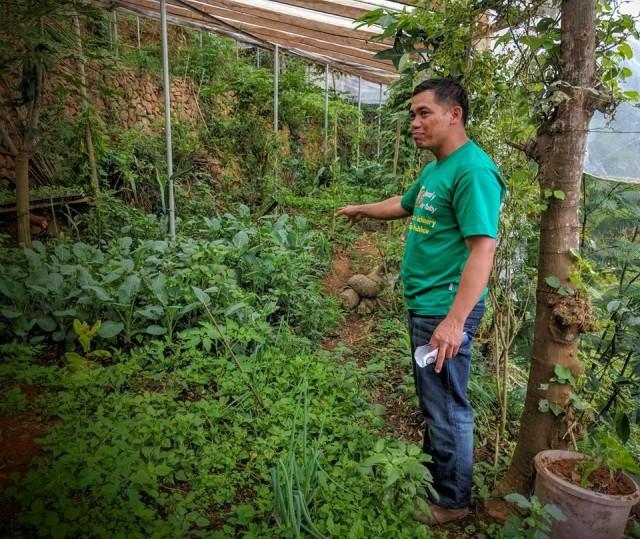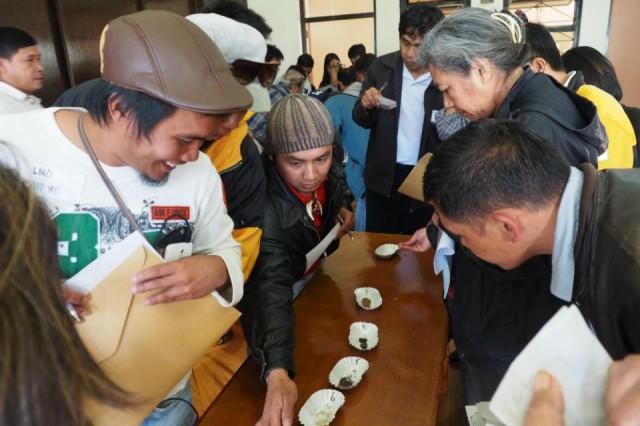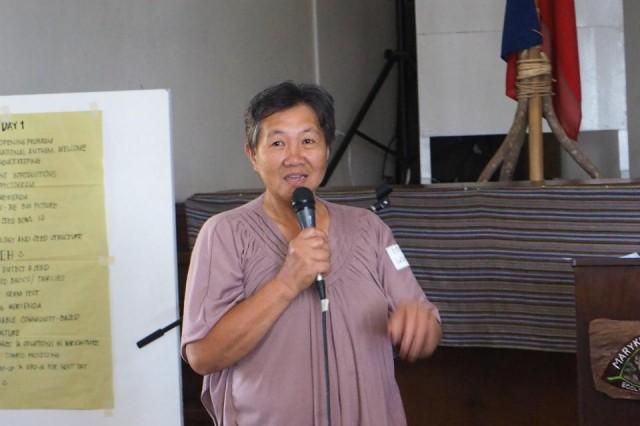Pinoy farmers move to save seeds for posterity
A group of Filipino farmers is undertaking a task that is very much akin to—and perhaps just as noble as—the biblical story of Noah's Ark.
The industrialization of agriculture in the last 40 years alone has seen a 90% drop in the world’s food crop diversity. It has also caused smallholder farms to bear the economic, environmental, and health costs of the chemical inputs required to grow hybrid seeds.
Putting small farmers in control
Putting seeds in the control of smallholder farmers and sharing them at the community level is one way to contribute to future food diversity and security. This is the aim of the Seed School and Farmers’ Capacity-Building Program. The program seeks to enable organic practitioners to produce and distribute seeds locally, and to spread seed-saving techniques through direct, farmer-to-farmer exchanges.
Forty-six farmers from the provinces of Benguet, Pangasinan, Aurora, Rizal, and Iloilo gathered in the Maryknoll Ecological Sanctuary, Baguio, last year to become part of the worldwide initiative to create food security and cultivate food diversity through the simple act of saving seeds.
 Paster Andrew Bandiwan in a portion of his organic farm in Tublay, Benguet. He has already produced seeds from chives, French beans, ampalaya, and okra. (Photo: Heather DeLong)
Paster Andrew Bandiwan in a portion of his organic farm in Tublay, Benguet. He has already produced seeds from chives, French beans, ampalaya, and okra. (Photo: Heather DeLong)The Seed School, held November 10-12, 2016, was organized by Friends of ENCA Farm, a non-profit educational and advocacy organization that supports farmers and environmental conservation programs around the Philippines.
ENCA is an organic farm nestled in the hills of Tublay, Benguet. It is the ancestral land of the descendants of Enrique and Carmen Cosalan. The Cosalan clan envisions a community around the farm “that is committed to sustainable development, organic farming, and environmental preservation.” Friends of ENCA supports them in this effort, and seeks to spread this vision by working in partnership with farmers and environmentalists here and abroad.
Seed saving, a heritage
Sherry Manning, founder of Friends of ENCA, pointed out that seed-saving is a historical, ancestral practice for all farmers. It enables farmers to select the best of their crops for resilience, flavor, color, and even fragrance. By taking seeds from their own crops and re-planting them, farmers can create their own varieties that are adapted to their land and climate. By storing these seeds in community-run seed libraries, or distributing them commercially and locally, farmers help each other to propagate regional food diversity.
During the three-day Seed School, the participants learned the basics of seed-saving for their organic practice. They also learned about best practices for long-term storage of seeds. The resource persons were Bill McDorman and Belle Starr of the Rocky Mountain Seed Alliance.
 During one of the Seed School activities, the farmers were asked to identify unlabelled seeds laid out on the table.
During one of the Seed School activities, the farmers were asked to identify unlabelled seeds laid out on the table.Together, McDorman and Starr founded the Seed School in Idaho, U.S.A. Both have advocated seed-saving since the 70’s. Their Seed School has produced 800 graduates since 2010. Many started their own community farms, bioregional seed companies, and seed libraries.
Heather DeLong of Denver Urban Gardens and the Delaney Community Farm in Colorado, guided the farmers and their organizations through a process of identifying challenges to seed saving and the community assets that would help them achieve their plans. DeLong travels around the world conducting workshops with organic farmers, helping them to identify locally-viable ways to sustain their work.
Though this was their first visit to the Philippines, the resource persons adapted their input to the situations they observed during visits to participants’ farms in Tublay, and to address the needs that the farmers themselves identified. Karen Hizola, Philippine Program Manager for Friends of ENCA, played a key role as both community organizer and translator between the resource persons and the local farmers.
Challenges to Pinoy farmers
The farmers spoke on the challenges they face. They are feeling the impact of climate change. It is difficult to adjust to and recover from the effects of extreme weather, drought, and outbreaks of pests and disease. Organic farmers are required by law to undergo third party certification, which is a costly process that most smallholders cannot afford. However, in Iloilo, farmers’ organizations have established their own local certification process.
For some of the participants, securing their rights to their ancestral domains and lands is an ongoing struggle.
The easy availability of hybrid and treated seeds on the market would make it difficult to convince other farmers to make the switch to seed-saving. Despite these hurdles, the participants from Benguet in particular are poised to become seed teachers. Some have already organically produced and stored their own seeds. Plans are underway for the next Seed Schools, this time with local farmers as the resource persons.
 Ester Caga speaks of how organic farming is about preserving “the dignity of the environment.”
Ester Caga speaks of how organic farming is about preserving “the dignity of the environment.”Ester Caga, a farmer in Tublay, said that she and her companions are committed to sharing and “translating” the knowledge and techniques of seed-saving. In her words, organic farmers must work hard “to preserve the dignity of the environment.” — TJD, GMA News




